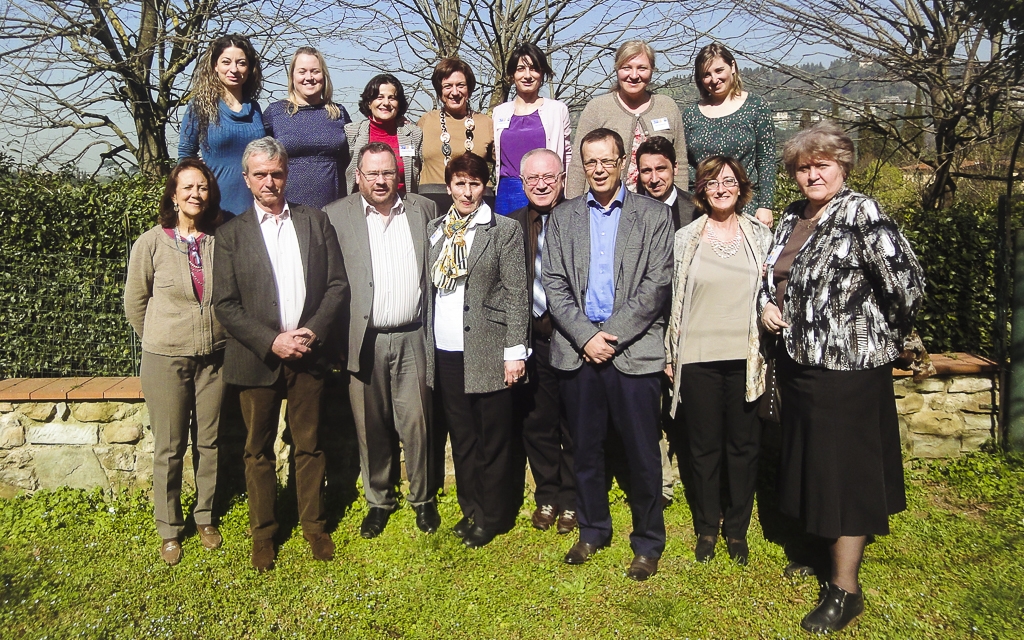
The MISMES Project
The Migration Policy Centre at the European University Institute and the European Training Foundation (ETF, www.etf.europa.eu)
are conducting an inventory of migrant support measures from a skills and employment perspective, which are implemented in (or by) migrant-sending countries.
[See ETF Project Note in English]
[See ETF Project Note in Russian]
[See ETF Project Note in French]
The main objective of this study is to provide evidence-based, policy-oriented inputs to guide EU cooperation with Neighbourhood partner countries in the field of legal migration, particularly from a skills and employment perspective. This global study will identify the range of migrant support measures from a skills and employment perspective with the aim of assessing 1) their cost-effectiveness and 2) their impact on labour migration process outcomes.
For the purposes of the study, migrant support measures are defined as policy interventions aimed at improving the labour market integration of migrant workers/returnees and reducing the underutilisation of migrant workers’ skills before, during, and after migration. In order to systematise the analysis, nine preliminary categories of measures were identified: i) international job-matching measures; ii) pre-departure information, orientation, and/or training schemes; iii) access to labour market information and protection of migrant workers’ rights in destination countries; iv) assessment, certification, validation, and recognition of migrants’ skills and qualifications; v) measures that aim to improve the utilization of migrant workers’ skills; vi) programmes for capitalizing on skills across borders (including in diasporas); vii) measures that aim to enhance migrant workers’ skills prior to migration, during migration, or upon their return; viii) active labour market policies to support the labour market reintegration of returnees; ix) targeted entrepreneurship and business start-up support for returnees.
Why bother with migrant support measures?
MISMES Project expected outputs
General Inventory of MISMES worldwide: This inventory will aim to assess different categories of MISMES in terms of cost-effectiveness and their impacts on labour markets outcomes of migrant workers. On the basis of the information collected, factors of success and common denominators will be identified, including contextual factors that may affect the impact of MISMES, as well as the challenges in implementing each category of migrant-support measures.
In order to collect information on existing MISMES, the project team and ETF have developed a detailed MISMES Questionnaire that is addressed to practitioners and organizations implementing MISMES worldwide.
Questionnaire in English
Questionnaire in Russian
Questionnaire in French
EU Neighbourhood Country Case Studies: In the second phase of the project, which will last until October 2014, the methodology developed for the General Inventory will be applied to five case studies aimed at analyzing MISMES in five countries of the EU Neighbourhood (Moldova, Georgia, Armenia, Morocco and Tunisia). The country case studies will aim to draw lessons for the optimization of their Mobility Partnerships or migration policy dialogues with the EU from a skills and employment perspective.
Migrant Support Measures in Mobility Partnerships analysed in five neighbouring countries
Completed Activities
| March 2014 13th-14th, EUI, Florence. | Workshop on MISMES Global Inventory | ||||
| November 19th, 2013. ETF, Turin. | MISMES Project kick-off meeting. | ||||
| Project team and ETF counterparts. | |||||
| Discussion of work plan and methodology | |||||
| 29-30 September 2014, Turin, Italy | MISMES Project final workshop to discuss | ||||
| the Global Inventory and the five country case studies and recommendations for the Mobility Partnerships | |||||
Research Team:

| Philippe Fargues and Alessandra Venturini | Scientific Directors | ||||
| Iván Martín | Project Coordinator and Principal Researcher | ||||
| Shushanik Makaryan | Principal Researcher | ||||
| Agnieszka Weinar | Policy brief author | ||||
| Irina Badurashvili | Country case study author for Georgia | ||||
| Valeriu Mosneaga | Country case study author for Moldova | ||||
| Sona Kalantaryan | Country case study author for Armenia | ||||
| Mohamed Bensaid | Country case study author for Morocco | ||||
| Larabi Jaidi | MISMES case study author for Morocco | ||||
| Iván Martín | Country case study author for Tunisia | ||||
| Mohamed Kriaa | MISMES case study author for Tunisia | ||||
ETF Migration Team:
Ummuhan Bardak
Anna Kahlson
Siria Taurelli
Eva Jansova
Publications:
- Global Inventory with a Focus on Countries of Origin by Iván Martín and Shushanik Makaryan
- Methodological Note For The Country Studies by Iván Martín and Shushanik Makaryan
- Country case study: Georgia by Irina Badurashvili
- Country case study: Moldova by Valeriu Mosneaga
- Country case study: Armenia by Sona Kalantaryan
- Country case study: Morocco (In French) by Mohamed Bensaid, Iván Martín and Larabi Jaidi
- Country case study: Tunisia by Iván Martín , Mohamed Kriaa and Mohamed Alaa Demnati
- Country case study: Tunisia (In French) by Iván Martín , Mohamed Kriaa and Mohamed Alaa Demnati
The MISMES project is financed by the European Training Foundation.


